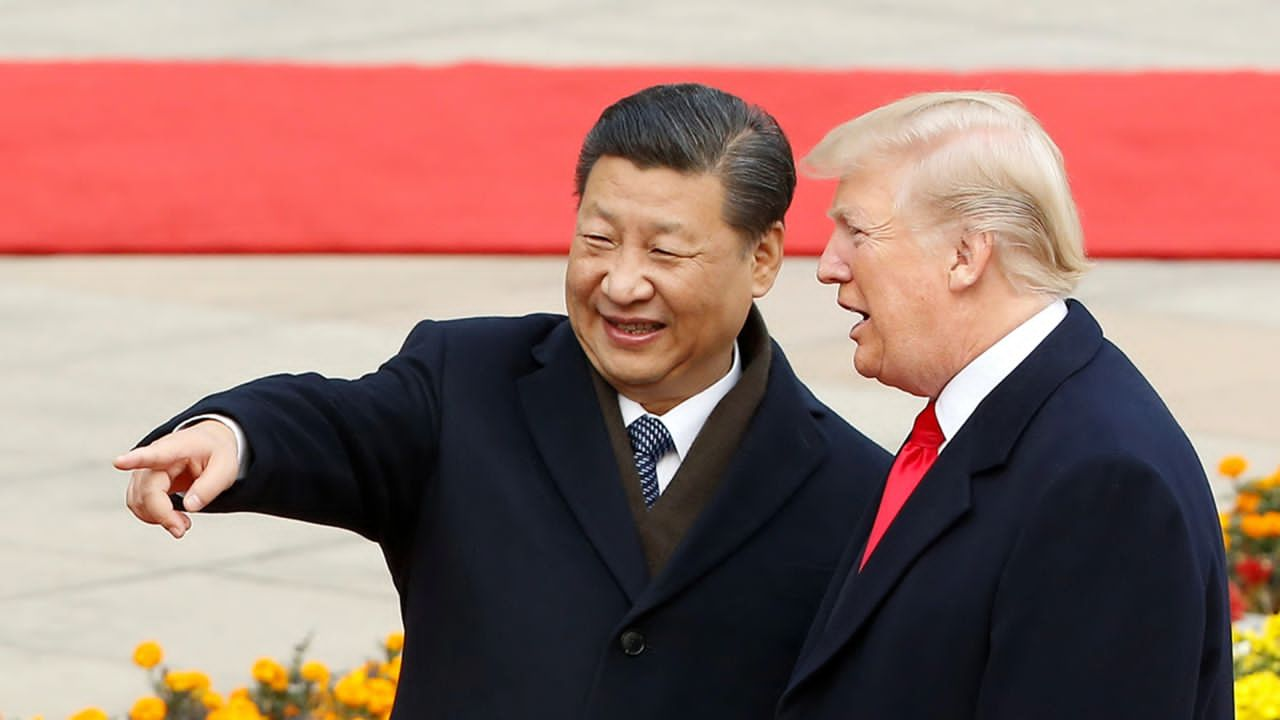By Paul Omo Okojie
As Nigeria’s fragile diplomacy is being tested as global power rivalry resurfaces on African soil. U.S. President Donald Trump’s threat of military action has thrown Nigeria into the middle of a geopolitical storm, one that could redefine its foreign policy and future alliances.
When Donald Trump recently declared that the United States might “take action” against Nigeria over alleged persecution of Christians, the shockwaves were immediate. His comments, widely condemned as reckless and inflammatory, revived fears of Washington’s return to aggressive interventionism in Africa.
Trump’s statement, which branded Nigeria as a “country of particular concern (CPC),” not only strained diplomatic relations but also exposed the fragility of Nigeria’s position in the new world order. The Nigerian government swiftly rejected the accusation, warning against any violation of its sovereignty and dismissing the claims as politically motivated.
Yet behind Trump’s rhetoric lies a deeper strategic play, one aimed at reasserting American influence in Africa at a time when China’s economic power has grown exponentially.
However, the United States has long viewed Nigeria as a cornerstone of African security and a key ally in counterterrorism efforts against Boko Haram and ISWAP. But relations have become increasingly transactional. Under Trump’s vision, Washington appears to be reviving an old strategy, using religious and human rights narratives to justify geopolitical involvement.
The implications are serious. Threats of sanctions or intervention could erode investor confidence, weaken Nigeria’s credibility on the global stage, and push Abuja further toward alternative partnerships. There’s growing concerns from former leaders including diplomats have warned that coercion or intimidation by Washington could backfire, driving Nigeria into the arms of China and Russia a move that could permanently alter Africa’s strategic.
While the U.S. uses diplomacy and pressure, China has been building roads, railways, and power plants. In Nigeria, Beijing’s presence is not just visible it’s also structural. From the Abuja–Kaduna railway to the Lekki Deep Sea Port, Chinese-funded infrastructure projects have become central to Nigeria’s development ambitions. While the Americans was busy in the Middle East, China was busy in Africa.
Trade between both nations now exceeds $20 billion annually. Chinese loans and investments dominate Nigeria’s construction, energy, and technology sectors, while cultural and diplomatic exchanges continue to expand under the Belt and Road Initiative.
To many Nigerian policymakers, China represents a pragmatic partner; one that offers tangible development without the political lectures. Yet critics warn of potential debt dependency and opaque financial agreements that could undermine national autonomy. This could lead to Nigeria being highly indebted to the Chinese due to the inability of leaders in Nigeria to be transparent and accountable.
Presently, with Trump’s aggressive posturing on one side and China’s quiet economic conquest on the other, Nigeria finds itself at the heart of a modern Cold War. The battleground is not military, it is economic, diplomatic, and ideological.
More so, we must know that Washington’s approach is laced with conditionality and moral grandstanding, while Beijing’s model is transactional and infrastructure-driven. Both powers seek influence over Africa’s largest economy, knowing that whoever wins Nigeria wins West Africa.
Nigeria’s admission as a partner in the BRICS bloc further complicates the equation. It signals a tilt toward multipolarity, an Africa less beholden to Western powers and more aligned with emerging global players. This shift, however, could provoke renewed Western pressure and the risk of geopolitical retaliation that is likely unavoidable.
Moreover, for Abuja the challenge is not to pick sides but to manage relationships with both powers from a position of strength. Nigeria must:
• Pursue balanced diplomacy that maintains strong relations with the U.S. while expanding mutually beneficial partnerships with China.
• Prioritise economic sovereignty by renegotiating unfavourable loan terms and investing in local capacity to reduce dependence.
• Champion African unity through ECOWAS and BRICS platforms to ensure that Africa speaks with one voice in global affairs.
• Reinforce institutional transparency to safeguard against foreign manipulation and domestic corruption in international deals.
If handled wisely, Nigeria can turn this global rivalry into opportunity, extracting the best of both worlds to advance national development and assert true independence in foreign policy.
The Road ahead will be; is Nigeria becoming a battleground for the United States and China after the Trump threat? The signs are unmistakable. Both powers are circling Africa’s most strategic state, seeking dominance in trade, security, rare earth minerals and influence. But whether Nigeria becomes a pawn or a player will depend entirely on the vision of its leaders. Our main worry should be Nigerian leadership should understand the game as not to sell our destiny because of their own personal ambition.
History offers a warning: nations caught between competing empires often lose their agency. Yet, history also offers a chance; for Nigeria to emerge as a neutral force, a bridge between East and West, and a symbol of Africa’s growing political maturity must be established with a penchant for astute and outstanding diplomacy.
As Trump’s threats echo across the Atlantic and China’s cranes tower over Nigerian skylines, the world watches to see whether Nigeria will bow, bargain, or boldly chart its own course.
Paul Omo Okojie mniia, anipr, spj is a media consultant, journalist, political analyst, and advocate for democratic accountability.

